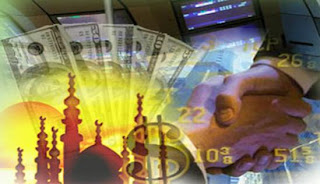Islamic Economic has emerged explicitly as one of the discipline in the academic arena purposively constructed to serve as an alternative of present economic system. Tremendous effort has been made by many scholars from the past indirectly to the present directly concerning on the construction of theory based on the foundation given by Islam.
The systematic thinking about Islam and economics by professional economists has a short story as compared to the earlier remarkable period of distinguished scholarship on various areas concerning sciences and humanities in the Muslim world (Abbas, 2007). Thus, the present day perspectives of the first three decades of the development of Islamic economics, the published literature and writing on the Islamic economic in various languages indicate the infancy of this discipline in constructing its own model or modified version of conventional economic (Abbas, 2007).
The development of Islamic Economic into a full-fledged has not yet achieved as it is expected, but works on this discipline are actively being done by many Muslim academician. There are still many area of research need to be done to cover the holes of all dimensions in Islamic Economic, so that it can be able to be an alternative of the conventional economic thoughts and practices, which is moving closely from realistic to idealistic.
Islamic economic has certain paradigm that distinguish its foundation with the others economic systems. It concerns on the socio-economic justice as its primary objectives as a reflection of man’s responsibility upon the resources on the earth (Chapra, 2001). Man’s responsibility is considered as a trust (amanah) that will be questioned during the day of judgement. Thus, man is not allowed to maximize his wealth and consumption as a mere goal of his life while at the same time oppressing the others’ right. The idea of more is always better than less is not necessarily good under all circumstances, as conventional economics stands with, while gaining more is better than less is also not denied to be always bad in all circumstances. If the increase, according to Chapra (2001) can be attained without weakening the moral fibre of society, raising anomie like drug addict, alcoholic etc, and harming the ecological balance, then more may be better than less.
Islam is a religion that promotes balance in all of its teachings regardless ritual aspect of worshipping, worldly action, ethics and moral conduct. The transgression of one aspect to the limit determined by Islam would rather cause someone to do injustice to him self, and so on digression from it would apply the same implications. All the things must be put accordingly as to conformity of the social justice concept in their life.
The assertion of religious-ethic based economic including the element of justice is paid a great concern in most of the definition of Islamic Economics, such as:
1. Islamic economics may be defined as that branch of knowledge which helps realize human well-being through an allocation and distribution of scarce resources that is in conformity with Islamic teachings without unduly curbing individual freedom or creating continued macroeconomic and ecological imbalances (Chapra, 2001).
2. Islamic economic is the knowledge and application of injunctions and rules of the Shariah that prevent injustice in the acquisition and disposal of material resources in order to provide satisfaction to human beings and enable them to perform their obligations to Allah and the society (Hasanuzzaman, 1984).
3. Islamics economics is a social science which studies the economic problem of a people imbued with the values of Islam (Mannan, 1986).
With the embodiment of all the teachings and Islamic values into the economic practice would ensure the ultimate goal (falah in worldly life and the life in hereafter) of all action can be achieved. The effort of realizing this goal is helping people to go on the right path, making a wise decision of consumption, production, allocation and distribution of all resources.
Therefore, the emphasis is given to the all works of constructing the theory of Islamic economics based on the modification, rejection and acceptance way of doing it. A new paradigm shift should not be a patchwork of other people work but rather it comes after doing a close investigation of other economic thoughts and constructs independently our economic theory and practice from them. Otherwise, Islamic economics would remain be criticized as an adjusted capitalism school.
Reference:
- Abbas Mirakhor, A note on Islamic Economics, retrieved from http://irtipms.org/PubDetE.asp?pub=22
- Mohammad Umar Chapra, “What is Islamic Economics?” Retrieved from http://irtipms.org/PubDetE.asp?pub=66
- Hasannuzzaman, S.M. “Definition of Islamic Economics”, Journal of Research in Islamic Economics, Winter 1984, pp.51-53.
- Mannan, M.A., “Islamic Economics: Theory and Practice” (Cambridge: The Islamic Academy, revised ed., 1986), pp.425.
Abu Mardhiyyah (Undergraduate Student)
Department of Economic
International Islamic University of Malaysia (IIUM)



No comments:
Post a Comment